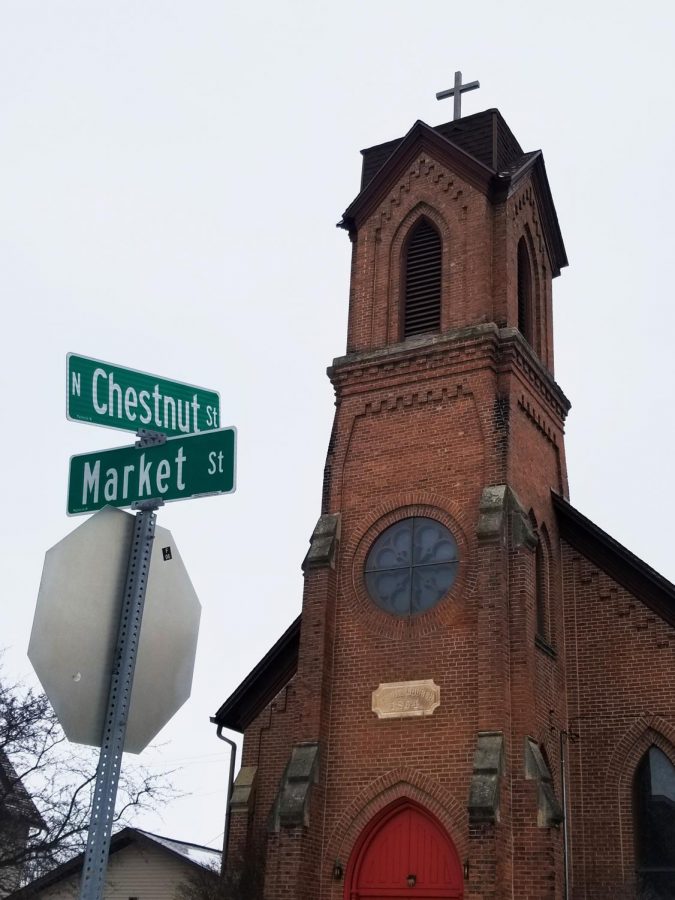Winter Farmer’s Market planned expansion
Trinity Episcopal Church provides space for local products to be sold to community.
Wisconsin’s longest running farmer’s market had eggs, beef, jam, dog treats and soap, and it will continue to offer fresh produce through the month.
“The winter farmer’s market is a continuation of the summer farmer’s market. Chickens don’t stop laying eggs, and this is an outlet for farmers to deal directly to the consumers,” farmer’s market manager Jenna Philips said.
Farmers are not required to attend the farmer’s market but there is a stable rotation of vendors with goods that are grown throughout the year. Most vendors keep chickens so that they have eggs to sell at the farmer’s market. Other vendors raise livestock throughout the year, supplying fresh beef and pork to the market.
“There’s a building number of vendors, always with a variety of product. I think it’s going to expand. We’re building up marketability,” farmer’s market board member Teresa Straka said.
Some vendors at the summer farmer’s market include the Green Campus Project who have been selling campus grown herbs for the last few years.
The number of vendors at the farmer’s market is expected to include many more bakers and vendors of baked goods because of a Wisconsin Circuit Court verdict in May of 2017. The case was between Lisa Kivirist, Kriss Marion and Dela Ends v. Wisconsin Department of Agriculture and Trade and Consumer Protection. The ruling was that the selling of “non-hazardous baked goods” at low volumes does not require a license.
“There are rules about it [what is allowed as a baked good], but we’re always looking for bakers,” Straka said.
Another political win for the vendors and the farmer’s market was the success of last year’s Voucher Program.
“[The Voucher Program] essentially targets low income folks that need nutrition. It’s an addition to the government programs that don’t quite cut it [reach everyone that needs help]. The vouchers let them [low income costumers] buy food and plants to grow their own food,” Philips said.
Last year, the farmer’s market was authorized a grant of $7,000 to cover the cost of vouchers used at the farmer’s market. Around $6,979 of the grant money was used.
“All but $21 was used by the vouchers. It’s fantastic because it allows the community to come together and help out,” Philips said.
The farmer’s market plans to continue its voucher program, and as part of their ambition to engage more of the Platteville community, the farmer’s market has selected locations for their market to be close for foot traffic and bus routes.
“Trinity [Episcopal Church] was good enough to let us rent the space for the last five years. We like to stay close to downtown because that’s the hub [of foot traffic]. Especially because of the bus routes,” Philips said.
Another part of their plan to involve the community is to honor the farmer’s market’s 40th anniversary.
“My goal this year is to make the farmer’s market sustainable for our 40th year anniversary and to grow it out. I want them [the public] getting out and about,” Philips said.
With their rented space and increased community engagement the farmer’s market is preparing for a fruitful year.




